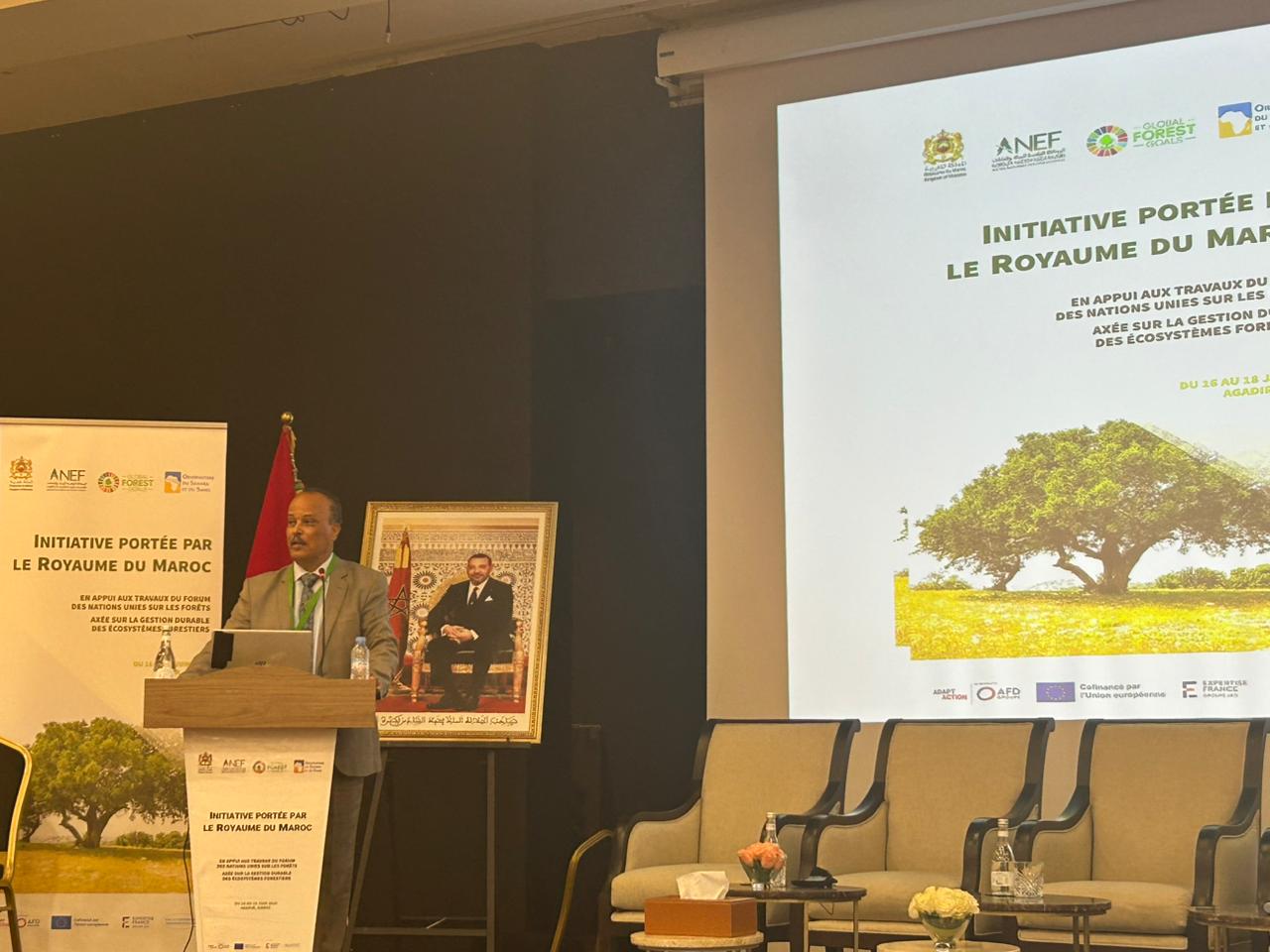
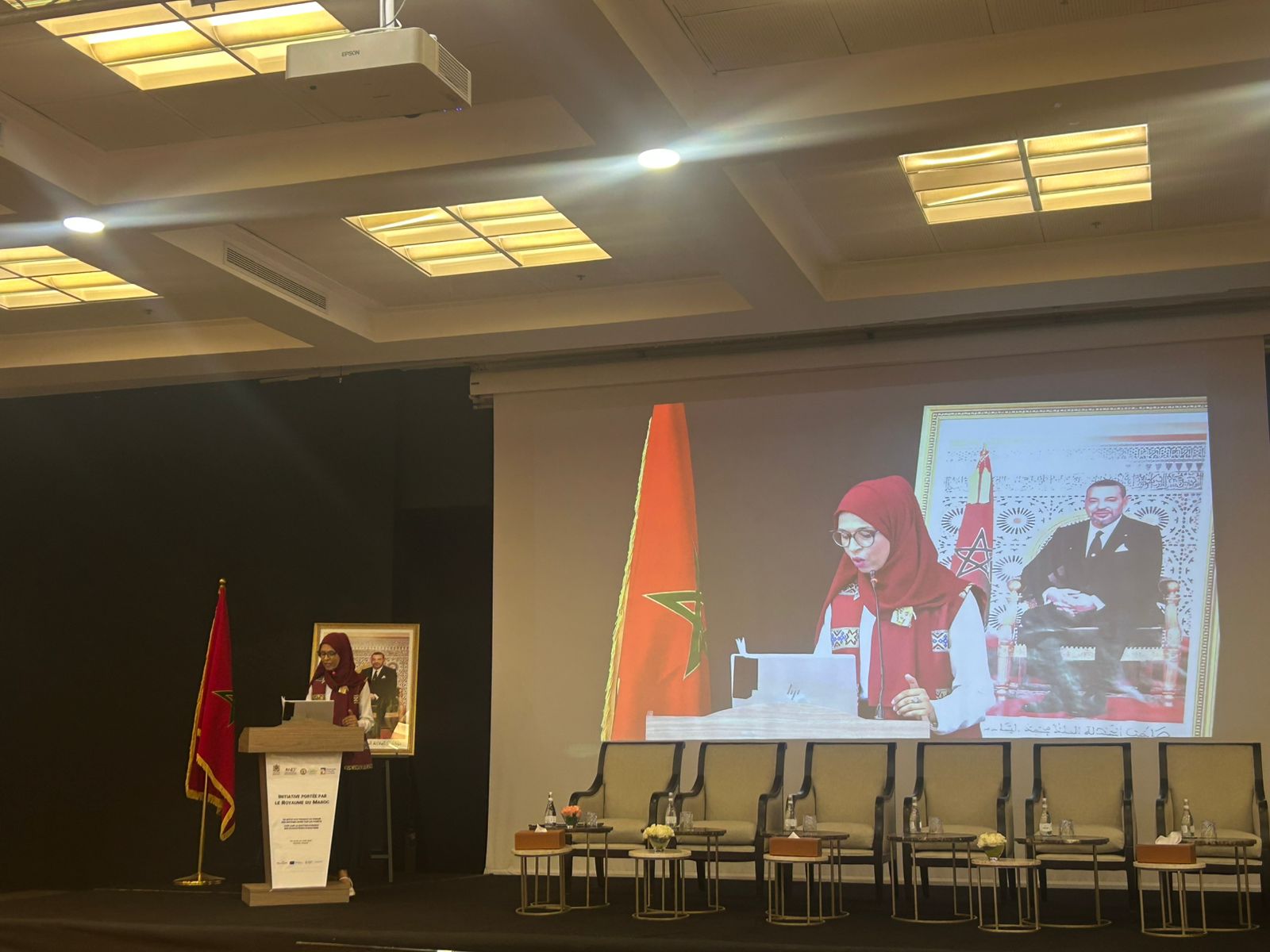
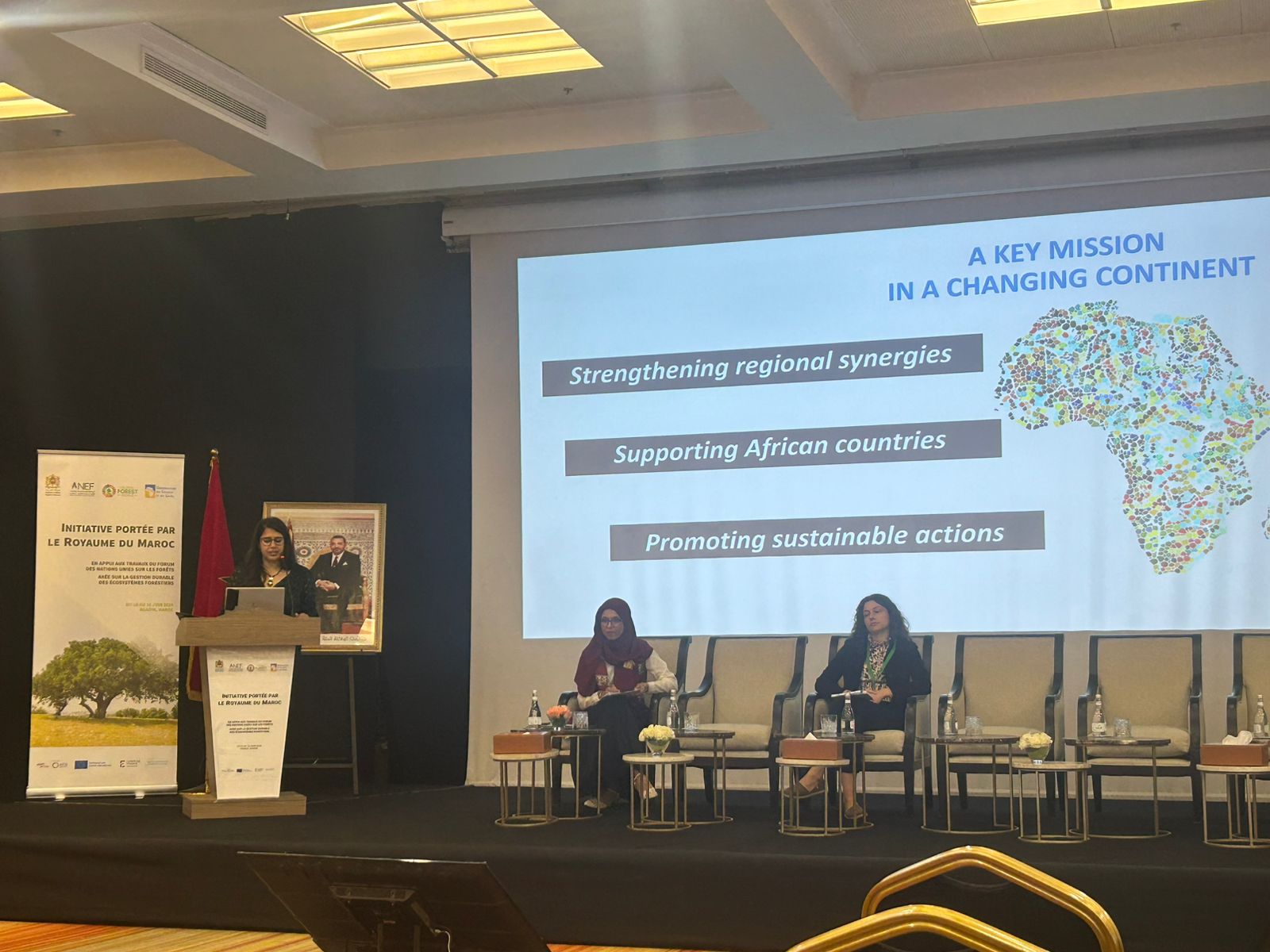
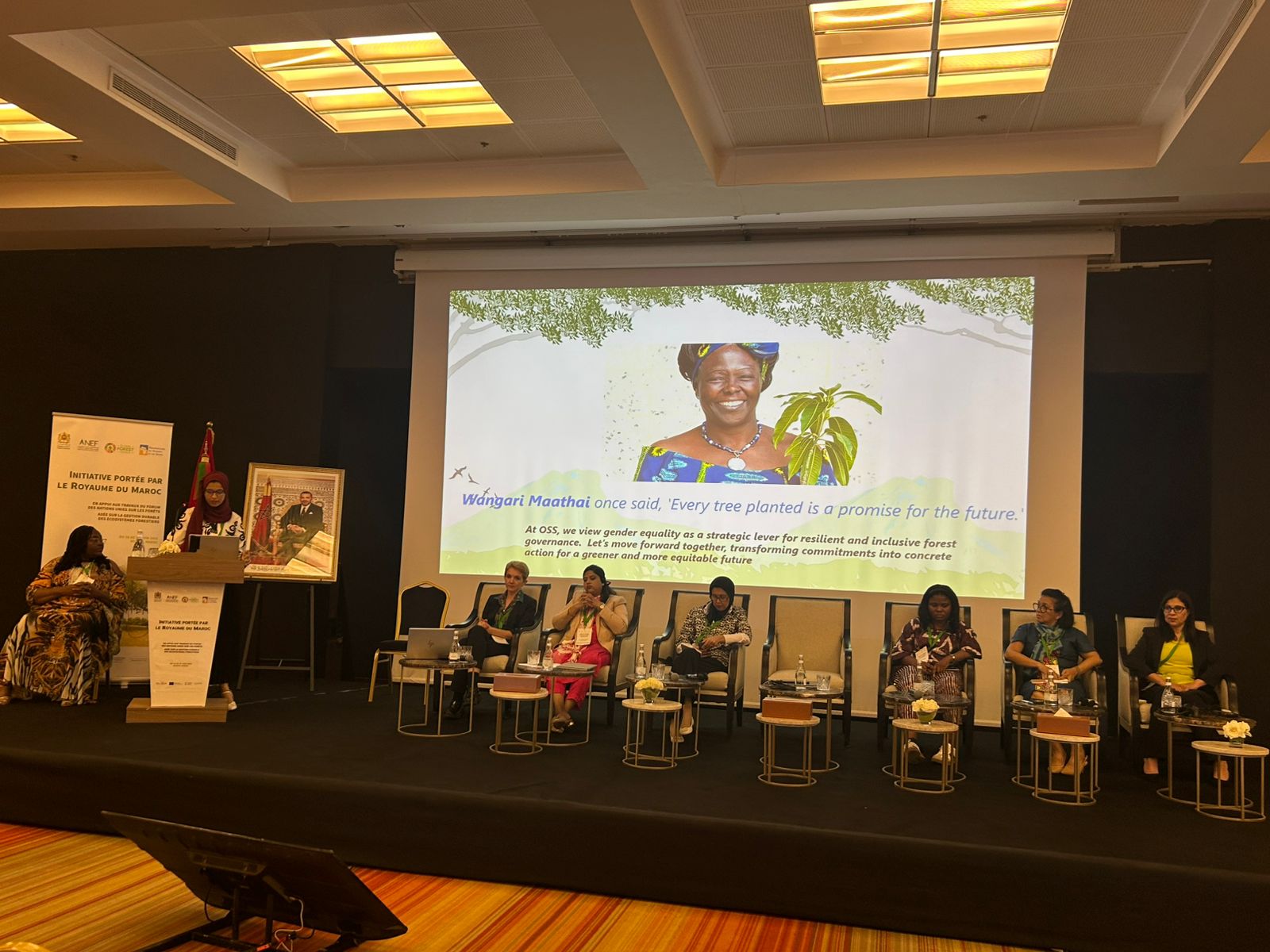
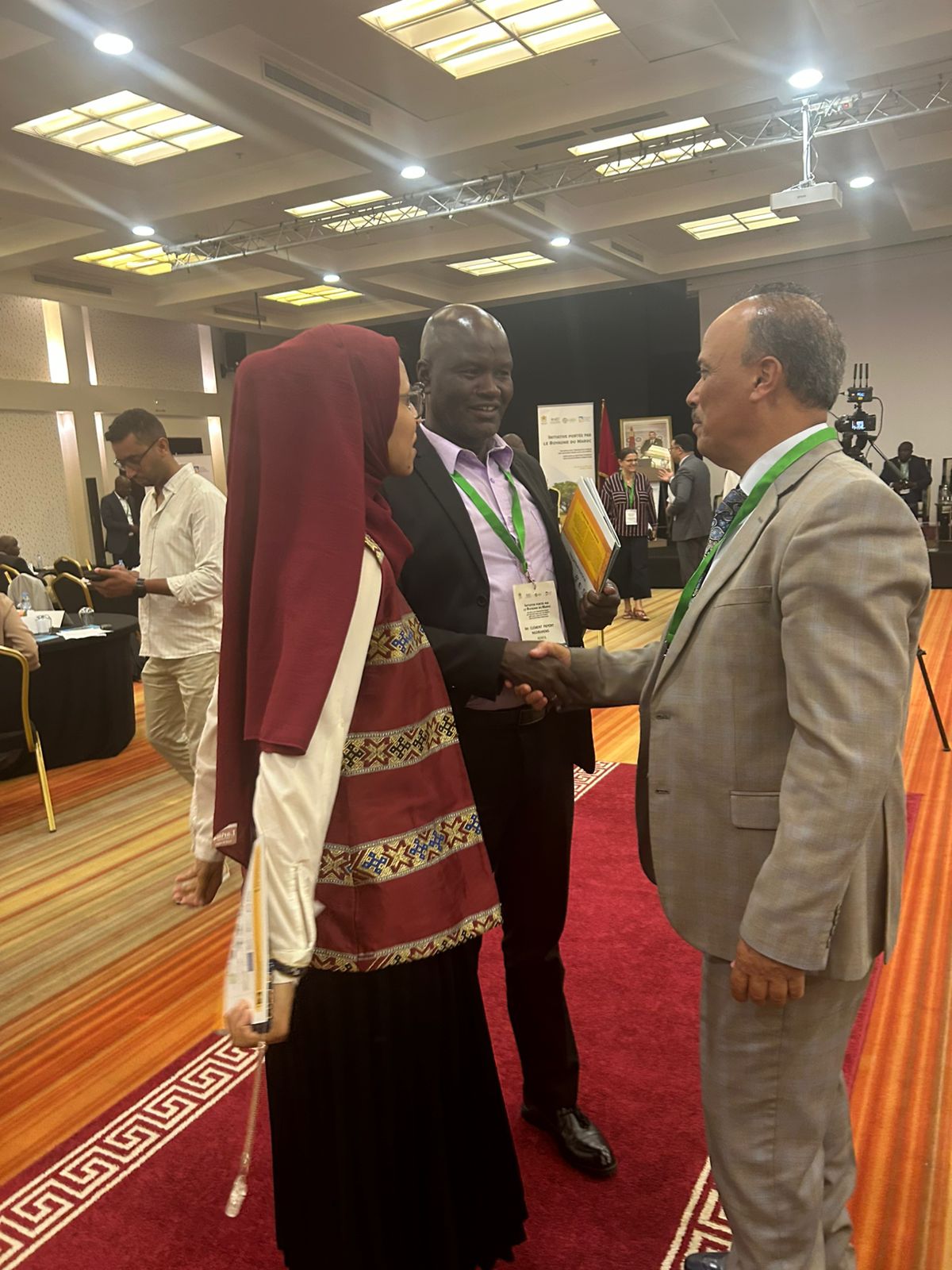
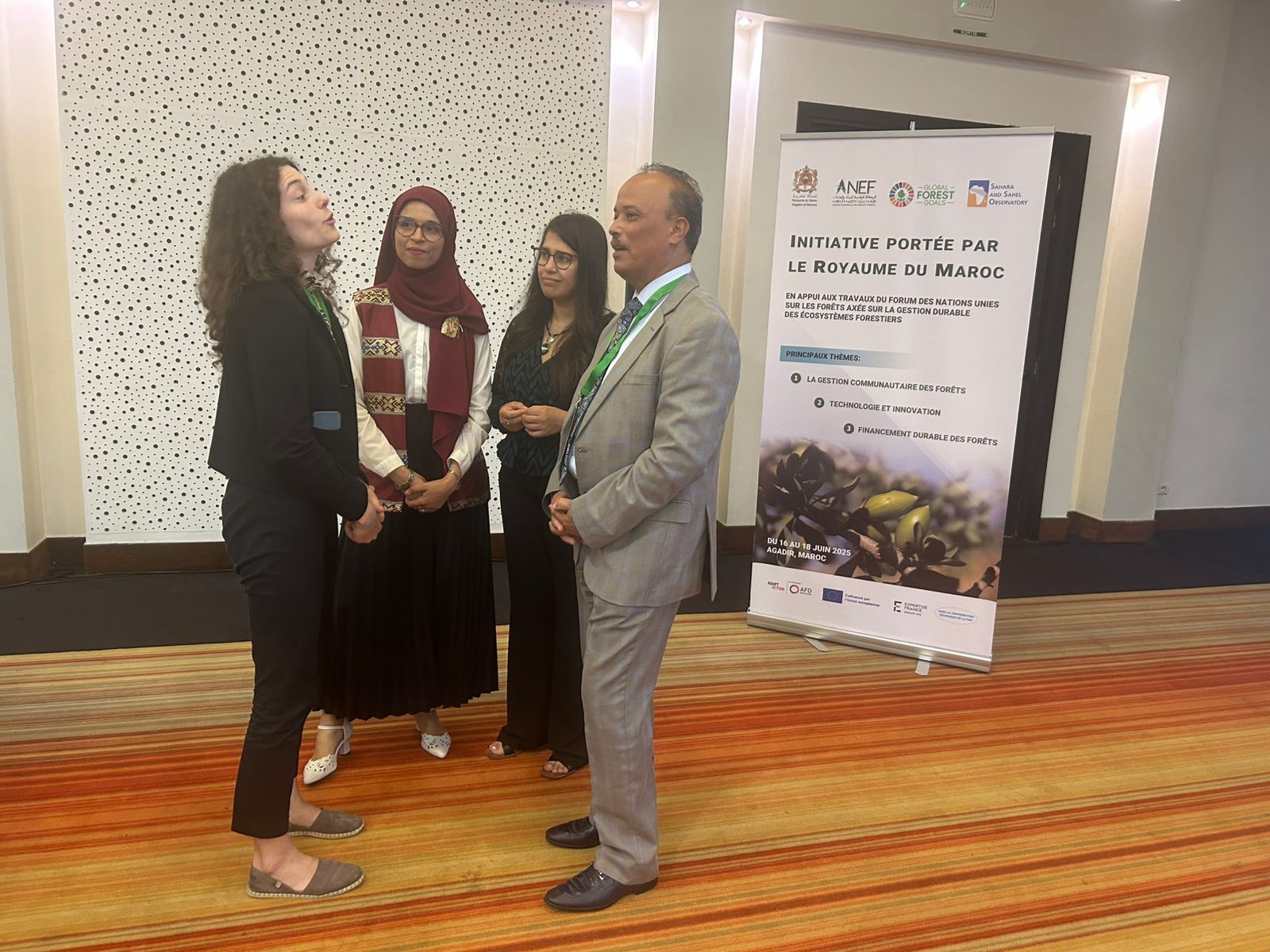



Jointly organized by the Sahara and Sahel Observatory (OSS) and the Moroccan National Agency for Water and Forests (ANEF), with the support of the United Nations Forum on Forests, the International Conference on Sustainable Forest Management was held in Agadir from June 16 to 18, 2025. This event brought together decision-makers, researchers, technical and financial partners, and civil society representatives around a common goal: addressing the growing challenges of deforestation, forest ecosystem degradation, and climate change through integrated, innovative, and inclusive approaches.
Through its financial and technical contribution, the OSS gave a huge impetus to the discussions by moderating the sessions on “technological innovation serving forest governance”. Focus was placed on the use of emerging technologies for more efficient, transparent, and participatory monitoring of forest resources. It also shared its experience in Ecosystem Natural Capital Accounting and Multi-Risk Early Warning Systems, illustrating the contribution of these tools in supporting forest policies based on reliable data and strengthening regional resilience to environmental pressures.
The OSS also participated in panels on sustainable financing, community management, and the gender approach, highlighting the importance of mobilizing appropriate investments, strengthening local participation mechanisms, and integrating women as key actors in forest management and development. Its role as a regional center for biodiversity was also highlighted through contributions on the integration of ecosystem data into public policies. Positive exchanges took place between the OSS and several national and regional partners, mainly on strengthening synergies around concrete and structuring initiatives for the sustainable development of forest landscapes in Africa.
In his closing remarks, Mr. Nabil Hamada, spoke on behalf of the OSS and reminded that preserving forests is much more than an environmental issue, but rather a collective responsibility for governance, social justice, and intergenerational solidarity. He also emphasized that the community-based, technological, or financial solutions shared in Agadir, must now be consolidated and translated into strong recommendations to be submitted at the next session of the United Nations Forum on Forests.
Committed to supporting the planning, monitoring, and implementation of sustainable public policies, the OSS reaffirms its support for African countries in building concrete solutions together, based on science, partnerships, and regional cooperation.